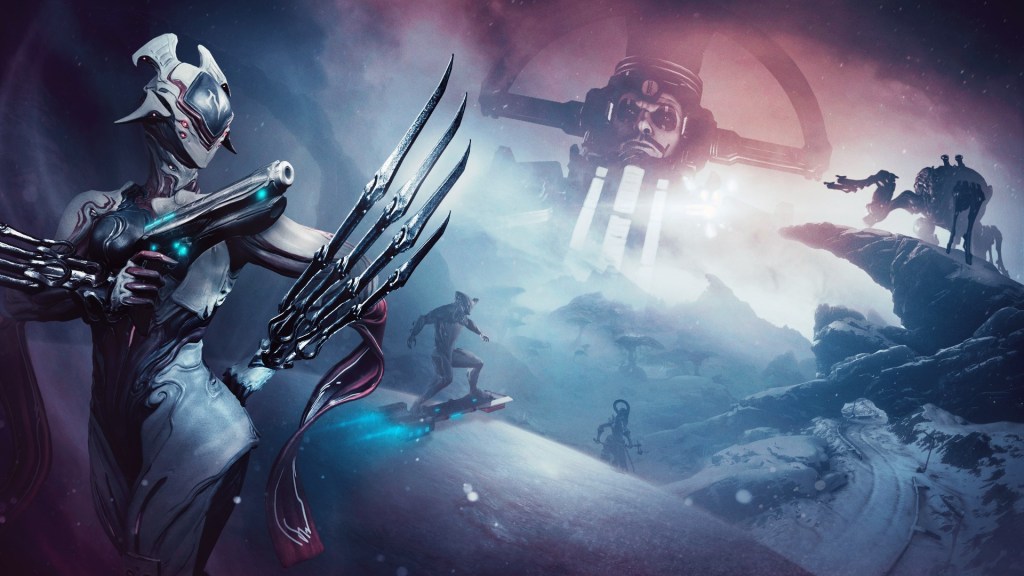With the ever-present issue of crunch becoming a more discussed topic, many developers have opened up about the issue. That’s exactly what Digital Extremes , the team behind the long-running action shooter RPG, Warframe, has done. When speaking with the company’s chief operating officer Sheldon Carter, Eurogamer was able to get a lot of information about the Digital Extremes’ workplace practices and how the team avoids crunch.
If you’re unaware, Warframe has been supported tremendously over the past six years, spawning numerous expansions, updates, and events. It reached close to 50 million players as of March 2019. It’s a live-service game that constantly pumps out new content. But how does the team avoid crunch when there’s always something to work on, especially with a hungry community on the other end?
Carter had this to say about crunch and workplace practices:
Our perspective is we’re very blessed to have a situation where we only have one immovable date every year, and that’s TennoCon, so we just want to make sure we have something that we can deliver for our fans so we know where we’re going with the game. Every other day other than that is fluid. Warframe is a game that’s been around for seven years and the reason why we’ve been around for so long is that our development team–generally speaking–take the idea that it’s a marathon, not a sprint. If we sprint, it’s not going to work, it’s not even a comment on crunch or the industry, it’s literally for our business model to work, we have to treat it like a marathon. If we did treat it like a sprint, we’d be dead. If we start losing our key developers because it’s too hard to work on this game, we wouldn’t.
Eurogamer then asked Carter if being transparent with the community plays a big part in helping prevent crunch. Carter replied:
Oh yeah–sometimes they get hungry, or they get upset sometimes because they want new content and they want it, but I think the relationship we have with them allows us to say, “Oh sorry, this isn’t going to come”. We have dev streams with them every two weeks where we update them on things, and all the time it’s like “I’m sorry, it’s not going to come right away, but we’re still going to try to give you new stuff that’s interesting and cool, it just might not be that crazy update you wanted.”
When asked about if other studios could adopt this mantra to avoid crunch, Carter wasn’t so sure:
I’m hesitant to say, because I think every game is different. I personally lived in the classic build-and-release cycle for a really long time, and I know that’s incredibly hard to manage and to figure out and to meet deadlines, so I have a lot of sympathy and empathy for every developer that’s in a different position than we are. We’re in this great one, so I love it.
Crunch has been a persistent issue in the video game industry, but now more so than ever. Games are massive, have high expectations, huge budgets, and are constantly evolving. While live-service games aren’t ubiquitous, they are certainly common, making it easy for a studio to crunch in order to keep up.
We’ve heard horror stories from Epic Games, the developer of Fortnite, in which some staff members pull 100-hour work weeks to keep up with patches. That’s not the norm, but even commonplace overtime reports suggest 70-hour work weeks at Epic.
To hear that Digital Extremes avoids crunch is heartening and hopefully more studios can adopt a similar approach when developing games.
[Source: Eurogamer]




